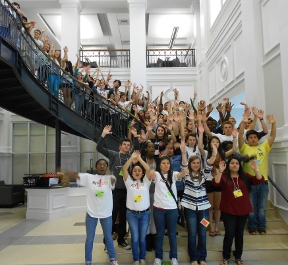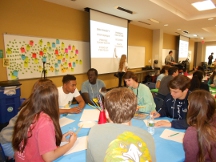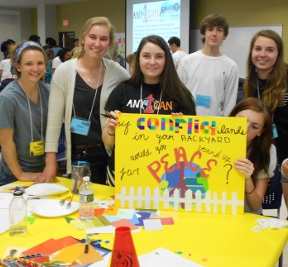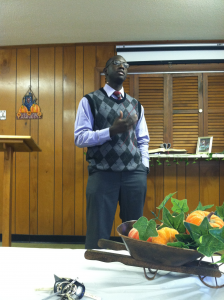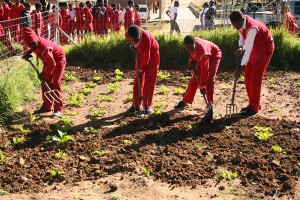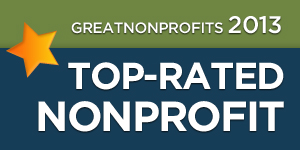Patricia Shafer, December 18, 2015
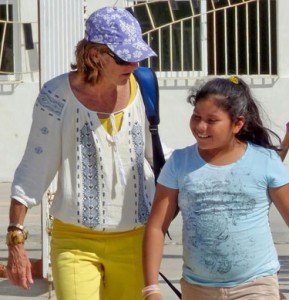 Stepping Stones – Mexico catalyst Lynda Boozer is getting ready to lead a third youth arts and creativity camp at La Ciudad de Los Niños y Niñas (Boys and Girls Town) orphanage in La Paz, Baja, Mexico. What’s becoming an annual event gets us excited every December when we anticipate Lynda’s mid-January trip with supporting volunteers.
Stepping Stones – Mexico catalyst Lynda Boozer is getting ready to lead a third youth arts and creativity camp at La Ciudad de Los Niños y Niñas (Boys and Girls Town) orphanage in La Paz, Baja, Mexico. What’s becoming an annual event gets us excited every December when we anticipate Lynda’s mid-January trip with supporting volunteers.
Lynda launched Stepping Stones – Mexico via Mothering Across Continents after I bumped into her while I was on a whale watching trip. We met briefly one morning in the hotel. A few days later, volunteer Jane Tanner took me to visit the children and staff at the orphanage. We all met again in
Charlotte, NC, after our respective returns.
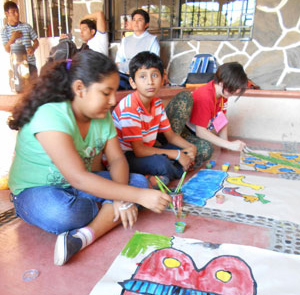 On the January 2016 trip, Lynda and volunteers will again bring thoughtful creative activities and lots of joy as they work with 50 youth living at La Ciudad orphanage. The focus is always on using the arts, interactively, to build character and a sense of connection between the youth, the earth, and the local environment. The “padre” of the orphanage has said, “Even the energy you bring is a gift; it empowers our small staff and the children.”
On the January 2016 trip, Lynda and volunteers will again bring thoughtful creative activities and lots of joy as they work with 50 youth living at La Ciudad orphanage. The focus is always on using the arts, interactively, to build character and a sense of connection between the youth, the earth, and the local environment. The “padre” of the orphanage has said, “Even the energy you bring is a gift; it empowers our small staff and the children.”
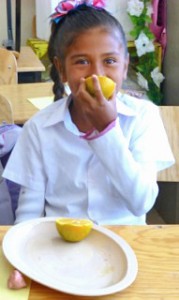 Lynda and the Stepping Stones – Mexico project have inspired creation of sustainable food gardens and the dream of a large park space to (hopefully) be developed on an adjacent empty lot. For the past year, the project has also included daily lunch for 80 schoolchildren at Escuela Nueva Creación primary school on the edge of La Paz. (Just $50 sponsors one child’s lunch for a whole year.)
Lynda and the Stepping Stones – Mexico project have inspired creation of sustainable food gardens and the dream of a large park space to (hopefully) be developed on an adjacent empty lot. For the past year, the project has also included daily lunch for 80 schoolchildren at Escuela Nueva Creación primary school on the edge of La Paz. (Just $50 sponsors one child’s lunch for a whole year.)
None of this would be possible without friends and strangers. Donations of all sizes are essential. This past year, a donation of more than $2,000 from students at East Mecklenburg High School under the guidance of the school’s Global Immersion Steering Team co-chair Martha Deiss was a real boost to the project. In the past few days, a Girl Scout troop leader inquired about directing a portion of profits from cookie sales.
We often think: how appropriate that Lynda named this project Stepping Stones . . . in January, there she will go again . . . putting in place a few more elements of this lovely act of relationship building between 130 children in Mexico and kind supporters in the US.
Want to help? Click here

